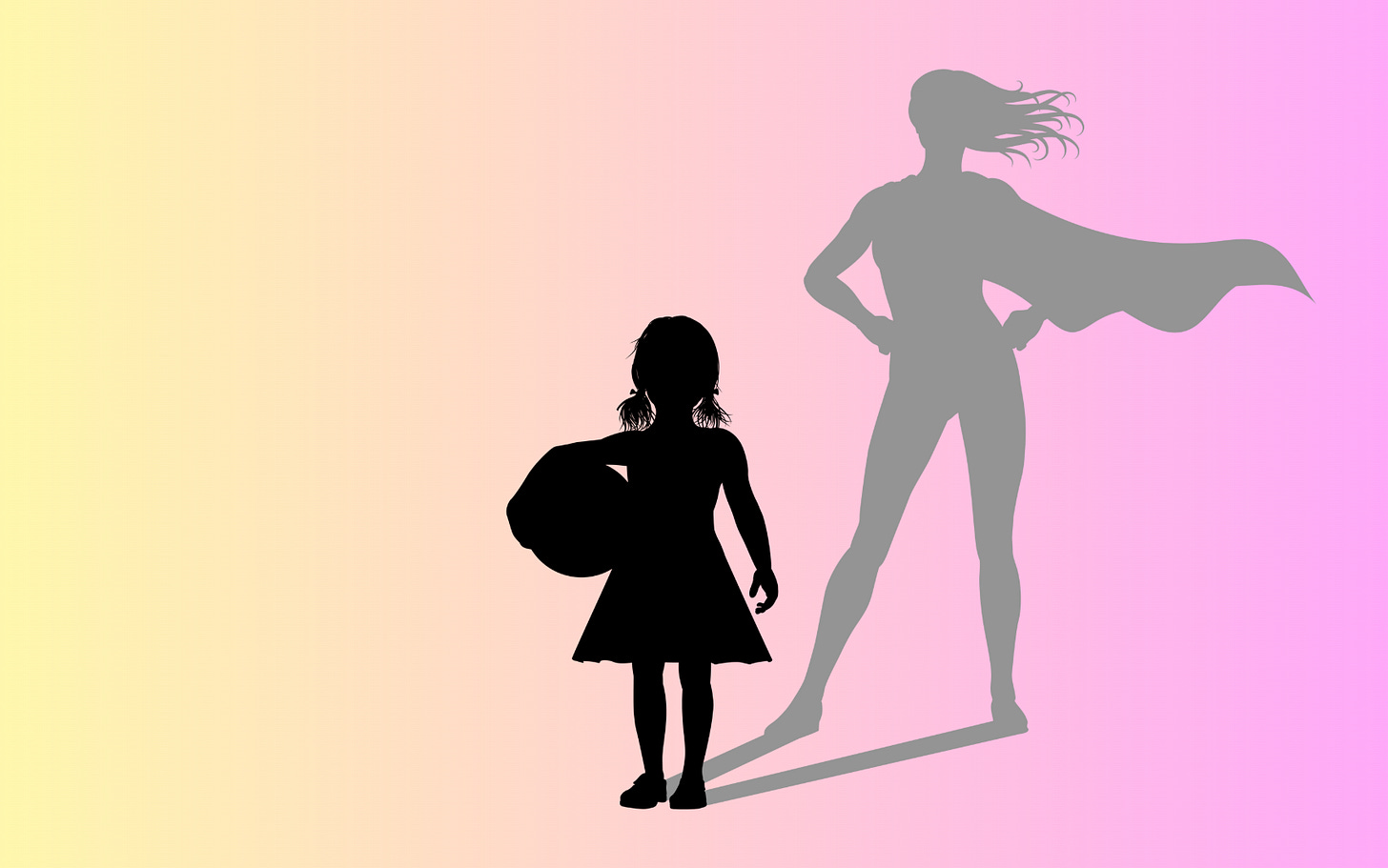A Myth for Our Time, Part 2
The Tipping Point
In Part 1, I explored Joseph Campbell’s Hero's Journey—why stories of ordinary people called into extraordinary adventures resonate so deeply and focused on “The Call to Adventure”. If you missed that post, you can read it here.
Now we focus on The Tipping Point in the Hero's Journey. This is the peak moment in the narrative arc.
Here, our hero faces annihilation. They’ve experienced a massive setback. Their situation is so bad, they see no way forward. Their enemy seems all-powerful.
The hero might lose everything they love. They may not make it.
If you turn this narrative arc upside down, the "peak" becomes the emotional low—the deepest, darkest pit of despair. In this moment, the hero could just give up the fight. And who could blame them?
Think of Frodo in The Lord of the Rings after Gandalf falls in Moria—or Harry Potter walking alone into the Forbidden Forest to face death. It’s Truman in The Truman Show when he faces the great storm (and his greatest fear). It’s Dorothy trapped in the witch’s castle, crying out for Auntie Em... and home. These are the moments that break the hero open—and also mark the turning point in the story.
Right now, many of us feel that emotional low—not just personally, but collectively. Democracy is under siege. Rights are under attack. The planet is in peril. Our national treasures—from alliances to vital programs— are being looted and in some cases destroyed. Every day brings more bad news.
We might be tempted to give up, to find a safe place and just hunker down. We might feel like nothing we do matters. Some of us might be without hope. Hopeless.
Our most beloved stories teach us this: we don’t need to feel hopeful to take action. We don’t even need to believe we will prevail.
So indulge me here. Maybe, just maybe, there is a reason why The Hero's Journey resonates so deeply within us. This "myth of our times" is ingrained in us—in our books, our movies, our comic books, and all forms of storytelling.
It is as if we have been training for this very moment.
Imagine this: our hero has reached the tipping point, the pit of despair, with seemingly no way out.
What would they do?
First: they decide to go down fighting—to act. What other choice do they have? It's either that or give up. Here their character shines through.
Despite fear. Despite failure and loss. Despite the odds, our hero keeps going. They take the next obvious step. They decide to do what they can, regardless of outcome. They act without assurance that their plan will work. These are the brave ones.
If you showed up at "No Kings," you are one of the brave ones. You showed up not knowing what to expect, after seeing horrendous images on the news and wondering if you were safe. Yes, this took bravery!
So now what?
We keep going. We take the next step. We show up. We speak out, we write, we call, we organize, we find unexpected and creative ways to protect what we love and defend the vulnerable. We find allies and we do this together.
When we get tired, we rest.
Then we go at it again.
This is what it feels like to be in the middle of the story where everything is at stake. It’s both exhilarating and exhausting. It's simultaneously joyful and frustrating. To be fighting up to and through the tipping point can be all these things, all at once.
This is our story.
Unfortunately, the tipping point is only obvious in retrospect—so yes, our situation can get worse. This thought lurks in the back of my mind. To counter this, I often think about The Lord of the Rings—and Gandalf the Great's wisdom for Frodo. ( It is especially compelling as J.R.R. Tolkien wrote this beginning in 1937 during the rise of fascism in Europe):
“I wish it need not have happened in my time," said Frodo.
"So do I," said Gandalf, "and so do all who live to see such times. But that is not for them to decide. All we have to decide is what to do with the time that is given us.”
We may not yet know the last chapter of this story. But we do know this: we have each other. And we are still here.
Like all of those rooting for Truman in The Truman Show, I can't help but wonder...
How’s it going to end?




